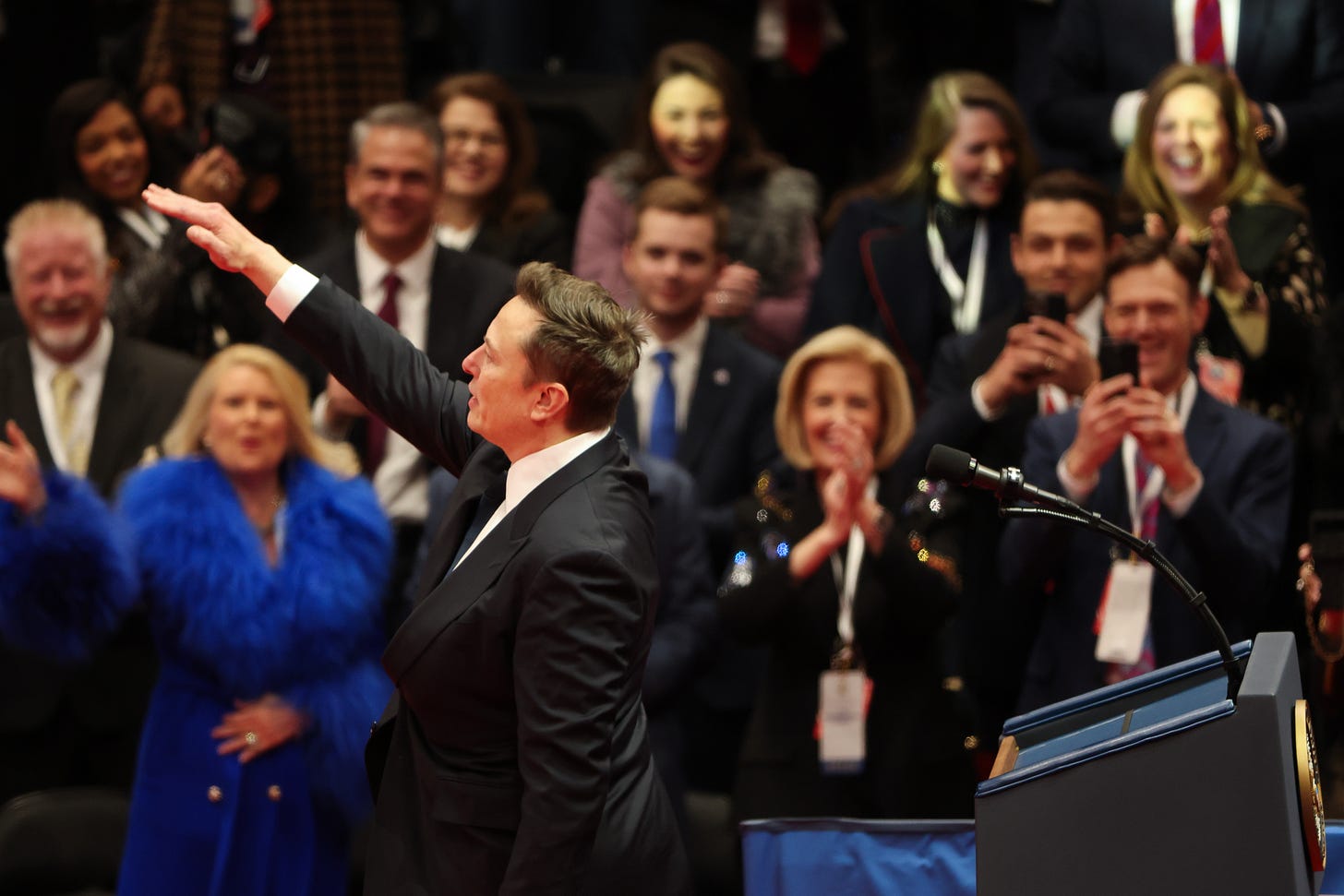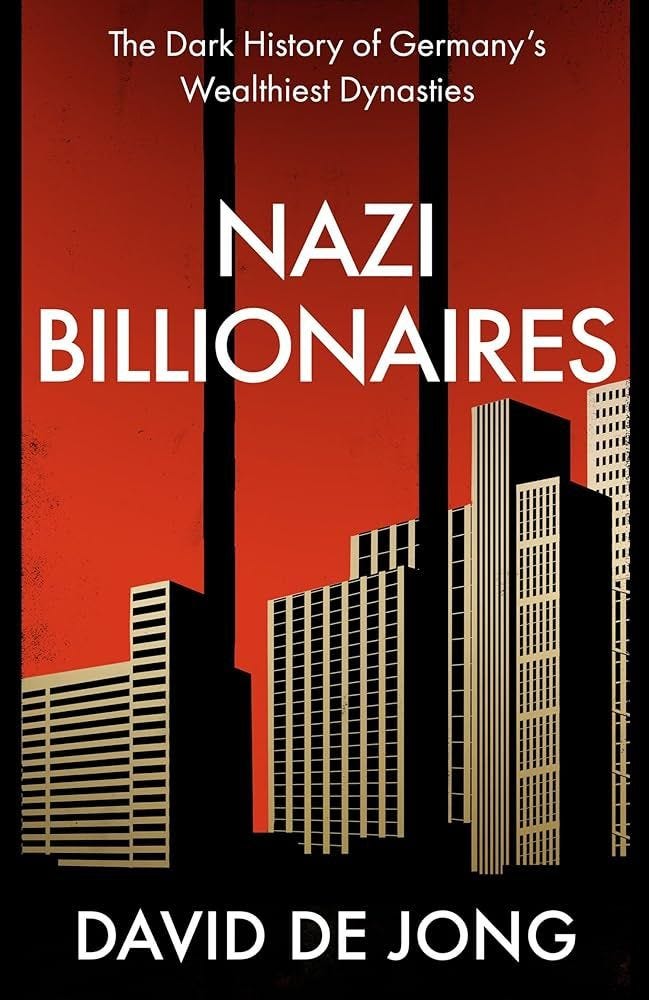"A pact with the devil"
David de Jong on oligarchs getting in bed with fascists.
🏛️ 🚂 🏭 With corporate outlets obeying in advance, independent political coverage is more vital than ever right now. Public Notice is made possible by paid subscribers. If you aren’t one already, please click the button below and become one to support our work. 🏭 🚂 🏛️
Donald Trump now has many of the country’s richest and most powerful executives explicitly on his side. That was evident this week as Elon Musk, Mark Zuckerberg, Jeff Bezos, Google CEO Sundar Pichai, TikTiok CEO Shou Chew, and OpenAI CEO Sam Altman all had prime spots at his inauguration and/or buttered up the new president while appearing with him at events.
The unholy pact between Trump and America’s richest and most influential tech entrepreneurs marks a significant difference from his first term, when prominent business leaders mostly kept him at arm’s length (or outright opposed him). But partnerships of this sort are far from unprecedented in teetering capitalist democracies. German industrialists, for instance, played a key role bankrolling and legitimizing Hitler as he consolidated his dictatorship.
In some ways, our current moment resembles Germany in early 1933. David de Jong, author of the acclaimed book, “Nazi Billionaires: The Dark History of Germany's Wealthiest Dynasties,” told us that many prominent German business leaders, such as Gustav Krupp, initially opposed Hitler. But they changed their tune after he became chancellor and promised to usher in an age of economic stability by crushing the political left (and ending free and fair elections).
“Prior to Hitler seizing power, these industrialists were establishment conservatives and found Hitler and his supporters to be garish, boorish, uniformed clowns from the impoverished areas,” he said. “With a couple exceptions, they only fell in line after he seized power, promised them riches, and delivered.”
De Jong told us he think it’s premature to draw too many parallels between what America is going through and the fall of the Weimar Republic, though he did invoke a different historical analogue.
“The rise of Nazi Germany, where these industrialists and financiers made a pact with the devil, is similar to what Russian oligarchs did in 2000 with Putin,” he said. “That, I think, is the most apt comparison.”
Our conversation with de Jong took place days before Elon Musk’s now-infamous double Sieg Heil salute at Trump’s inauguration. De Jong followed up with an email expressing alarm.
“I tried to be diplomatic about Musk (Heil-ion?) in our conversation Friday. But he just went right for it! Unglaublich, as the Germans would say.”
A transcript of the discussion between de Jong and Public Notice contributor Thor Benson, lightly edited for length and clarity, follows.
Thor Benson
To start with, could you tell me a little bit about how German industrialists contributed to Hitler’s rise?
David de Jong
They didn’t really fall in line until after Hitler seized power on January 30, 1933. The first real collaboration happened three weeks later on February 20 when Hitler assembled two dozen of Germany’s wealthiest industrialists, financiers, and CEOs. He summoned them to this meeting in a palace in Berlin where Hermann Göring was his right-hand man.
He invited them on the notion that he was going to explain his economic policies. Most of them he had never met. But instead of talking policy, he went on a 90-minute rambling speech where he didn’t say anything about economics. It turned out the whole meeting was a disguised fundraiser. The Nazi Party was in financial dire straits and needed to raise money before what turned out to be the final Weimar election on March 5, 1933.
These men were very explicitly promised by Hitler and Göring that these would be the last elections held for the next 10-100 years. They had no qualms getting out their checkbooks and signing over German democracy. That’s really the first instance of their collaboration.







